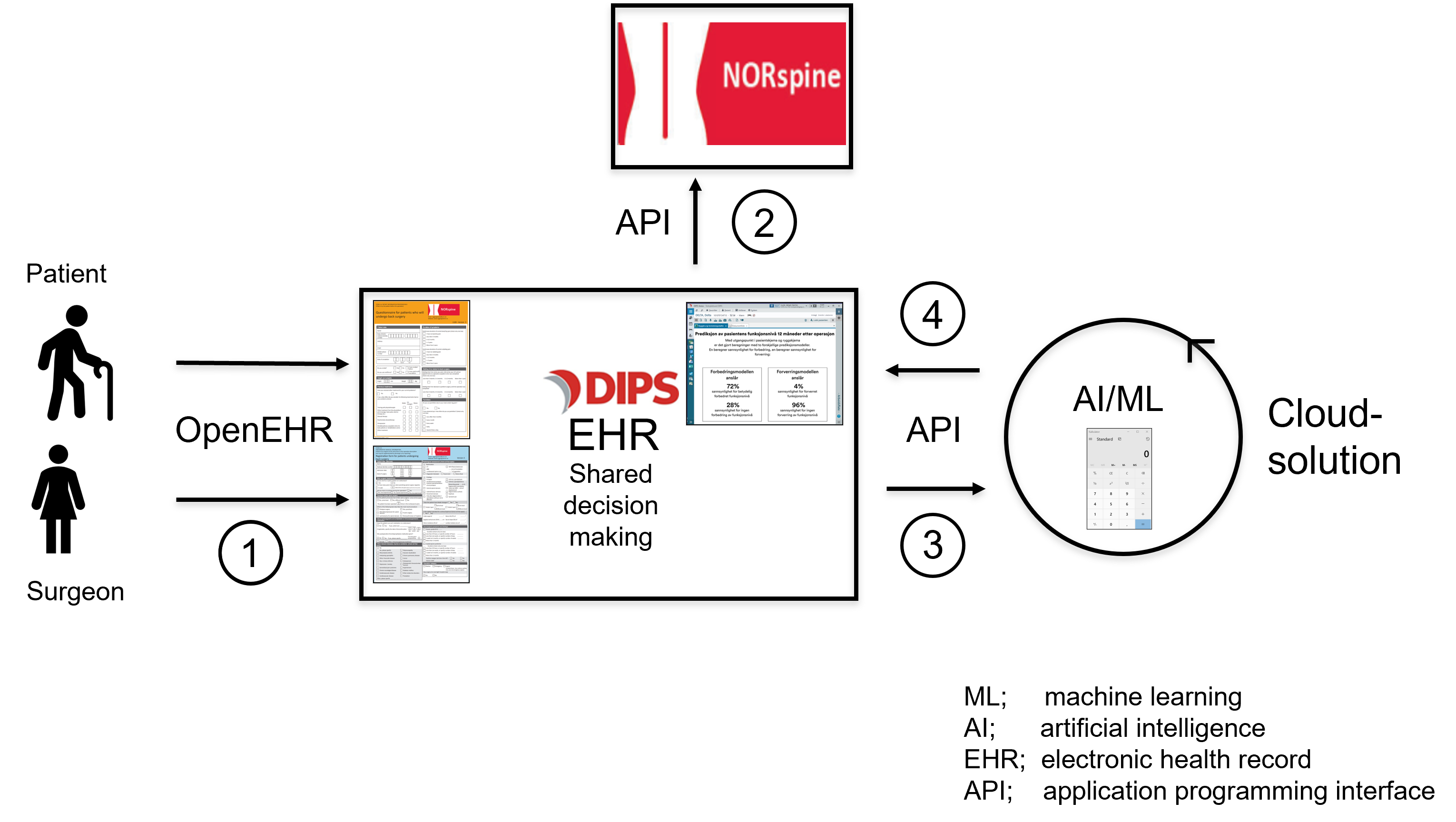AI-enabled decision support for spine surgery
Improving selection of patients for spine surgery with artificial intelligence-enabled decision support integrated in the electronic health record
The overarching aim of this innovation and research project is to complete the development of and assess the safety, feasibility and effectiveness of an artificial intelligence (AI) enabled decision support tool (DST) for lumbar disc herniation and lumbar spinal stenosis.

Specifically, we aim to conduct:
- A mixed methods feasibility study to evaluate and iteratively redesign the DST until it is safe and feasible for use in a pilot prospective observational clinical (proof of concept) study.
- A mixed methods clinical pilot study to evaluate the feasibility and safety of the DST and the related workflow for use in a subsequent main effect study, and to enable sample-size calculation for the effect study.
- A register-embedded centre-randomized prospective clinical effectineness study.
The DST is an AI-enabled software which uses data in the Norwegian registry for spine surgery (NORspine) to predict the outcome of surgery for LDH and LSS. The tool is seamlessly integrated in the regular user interface of the electronic health record DIPS®, and implies that patients and surgeons register data to NORspine through DIPS®. The development was initiated by NORspine, and organized as a project by the University hospital of North Norway’s (UNN’s) Centre for patient-centered clinical artificial intelligence (SPKI) and our research group. We have partnered with all stakeholders at the UNN, the Machine-learning group at UiT the Arctic university of Norway, the Northern Norway regional health authority ICT trust (HN IKT), the Research department at DIPS ASA and the health-data analyst company Deepinsight AS.
The feasibility study is scheduled to start i September 2024 at the University Hospital of North Norway. In the pilot study, the transferability of the tool will be tested by indclusion of patients also at the Nordland Hospital in Bodø. The effectiveness study is planned as a multicenter national trial.
Principal investigator: Tor Ingebrigtsen
Internal members: Tore K. Solberg, Henrik Lykke Joakimsen, Eirik Mikkelsen
External collaborators: Karl Øyvind Mikalsen (SPKI, University Hospital of North Norway and The machine learning group, Faculty of science and technology, UiT The arctic university of Norway), Heidi Johansen (Northern Norway regional health authority clinical IT-implementation project organization), Arne Magnus Sandvik (Northern Norway regional health authority ICT trust), Liv Bollvåg (DIPS ASA), Olav Willumsen Haugå (Deepinsight AS).
Publication 2012-2022:
- Werner DAT, Grotle M, Småstuen MC, Gulati S, Salvesen Ø, Nygaard ØP, Ingebrigtsen T, Solberg TK. A prognostic model for failure and worsening for lumbar microdiscectomy. A multicenter study from the Norwegian registry for spine surgery (NORSpine). Acta Neurochir 2021, doi: 10.1007/s00701-021-04859-3.
Members:
Financial/grant information:
Ph.d. grant from UiT The Arctic Univeristy of Norway
Innovation grant from the Northern Norway regional health authority
In-kind from the industry partners